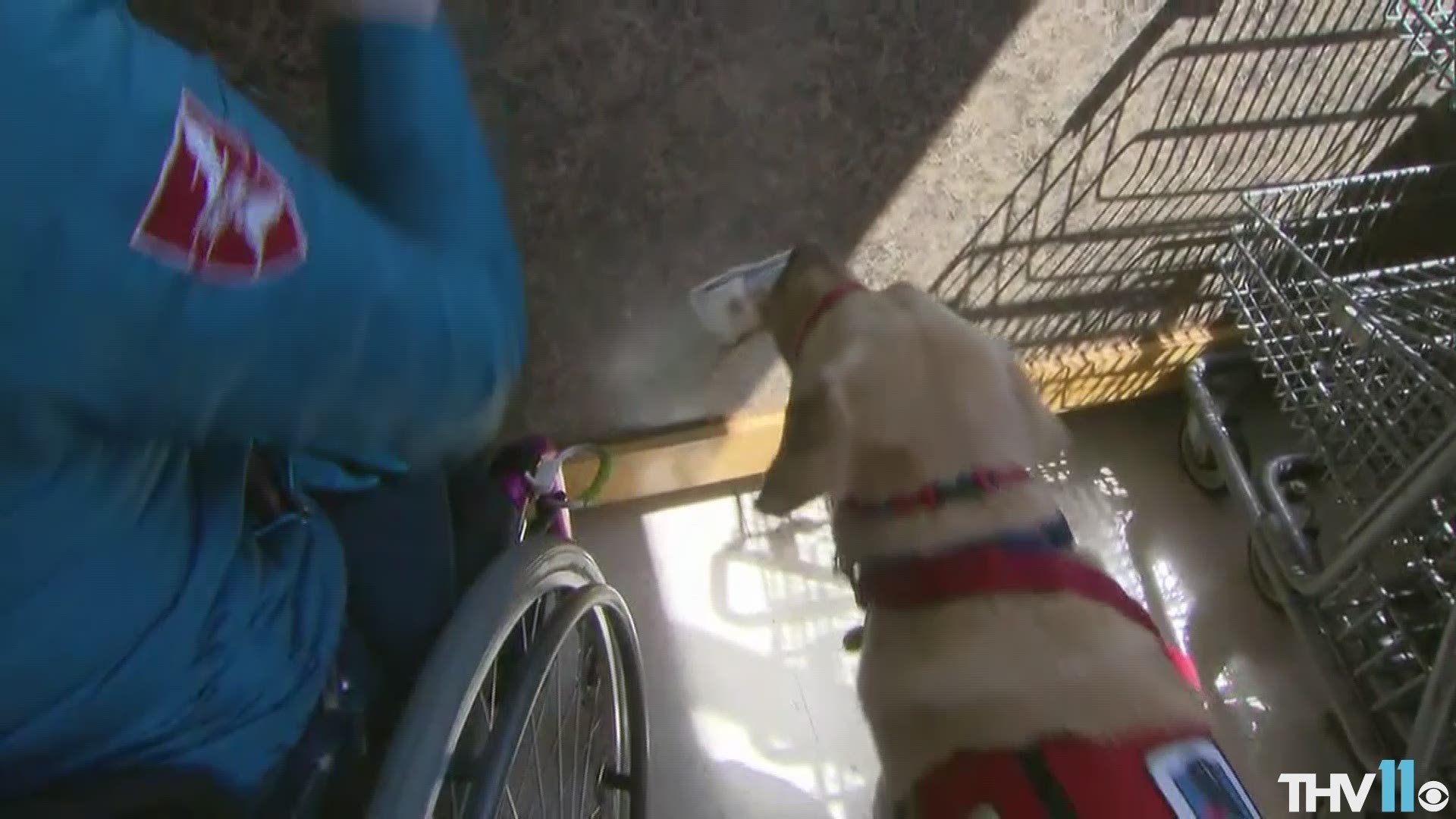LITTLE ROCK, Ark. (KTHV) - It's not uncommon to see shoppers and diners with service dogs in stores and restaurants, but there are questions from those in the food industry about whether some animals are being misrepresented and if it’s even regulated.
11 Listens went and got answers.
People with disabilities often use a service animal to help them perform everyday tasks, but not everyone has visible disabilities.
“An animal might help someone with reminding them to take prescriptions for instance, so it wouldn’t be physically a thing you could just easily see and know,” said Dr. Richard McMullen with the Arkansas Department of Health.
But when it comes to service animal expectations and public access there are questions from THV11 viewers wanting to know if there are any health codes in place. Dr. McMullen said there are rules pertaining to service animals and food establishments. “They're only allowed in areas where the public is allowed so an animal wouldn't be allowed anywhere where food is being prepared," he said.
While the American Disability Act does prohibit discrimination against any individual with a disability, Dr. McMullen said there is some obligation on the part of the handler to make sure they're service animal behaves appropriately.
"If it barks a lot or bites or growls or defecates they can ask the animal to leave,” he said. The business, however, must still provide service or offer an opportunity for them to have service without the animal. Still, business owners and managers often wonder if some patrons are trying to pass off their pets as service animals.
Some asked if there's any paperwork, I.D. or vest that's required.
“Those are totally unnecessary for anybody who has a service animal to provide that documentation," said Thomas Nichols, an attorney.
According to the Department of Justice, a business is however permitted to ask these two questions. "The first one is, ‘Is the animal for a person with a disability and what task does that animal perform?’" said Nichols.
And as far as safety is concerned, the health department said there's not a lot of diseases transmitted through humans and dogs, so the risk is very low.
"The benefits of helping disabled people greatly outweigh the risks of human health,” said Dr. McMullen.
If you have a question or concern about something, send us an email to 11listens@thv11.com

